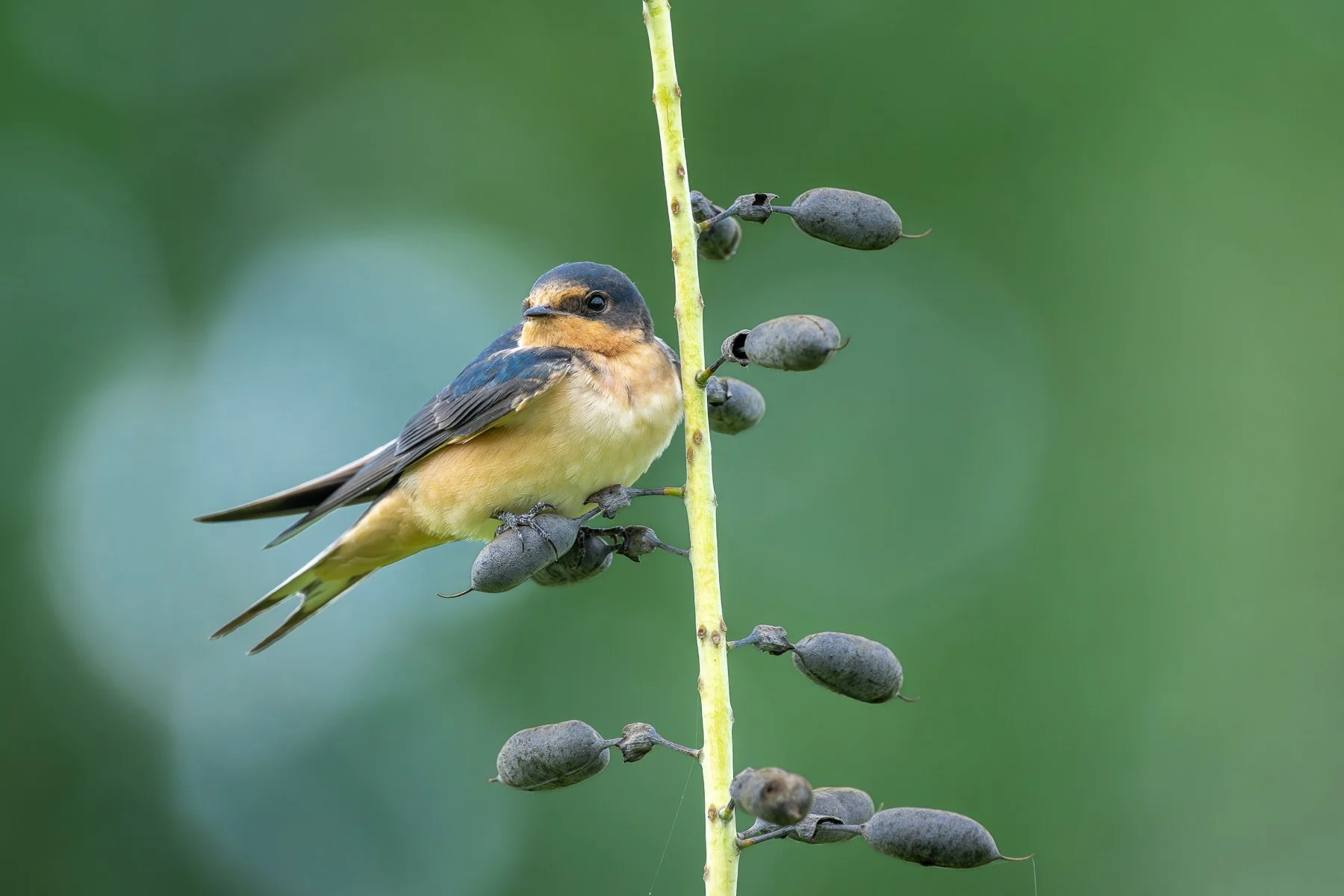A Bank Swallow alights on the spent flower stalk of a white wild indigo (Gary Shackelford).
In July and August, swallows gather in groups prior to and during fall migration. Multiple species participate in this flocking behavior, including the Bank Swallow. Arthur Cleveland Bent, author of the monumental multivolume Life Histories of North American Birds, wrote: “The flocking of bank swallows with other species of swallows is one of the most striking features of their behavior during autumn.”
We have observed six species of swallows at Fair Meadows, three of which nest here (Barn Swallow, Tree Swallow, and Purple Martin). Of the other species (Cliff Swallow, Northern Rough-winged Swallow, and Bank Swallow), we have seen the Bank Swallow only in late summer, after the nesting season and during fall migration.
One recent evening in mid-August, we observed a mixed flock of swallows shimmering in the waning light of the low-angled sun as they flew low over one of the prairies near our house. We could see abundant insects flying around at the same level—the swallows appeared to be feeding while on the wing. The species included mostly Barn and Bank Swallows, but also a few Tree Swallows.
A juvenile Barn Swallow perches on the seed pod of a white wild indigo (Gary Shackelford).
Tree Swallow (Gary Shackelford).
House Finch (Gary Shackelford).
After several minutes of nonstop feeding, the swallows would land on the spent flower stalks in a colony of white wild indigo plants (Baptisia lactea) to take a break. Being an avid bird photographer, I saw an opportunity here. After the birds had departed for the night, I set up a photo blind near the wild indigo colony. I entered the blind at first light the next morning, and shortly thereafter, the swallows arrived. They followed the same behavior as on the previous evening, alternating feeding on the wing with taking breaks by perching on the wild indigo stalks. For the next two hours I was treated to many closeup views of the swallows, which included a mix of adults and juveniles. One juvenile House Finch even made a brief appearance.
Differentiation of juvenile Bank Swallows from Tree Swallows can sometimes be difficult. Juvenile Tree Swallows are sooty gray-brown above and can have a dusky wash across the breast that resembles the similarly placed breastband in the pale brown Bank Swallows, but in Bank Swallows the band is more distinct.
I was fortunate to have set up the photo blind when I did. I left it in place for one more day, and after entering it again the following morning, only a solitary adult Barn Swallow showed up at the wild indigo colony. The swallows had moved on, presumably to points farther south.
Written by Gary Shackelford, Fair Meadows Sanctuary resident manager
Cover image by Gary Shackelford. A mixed flock of swallows at a colony of white wild indigo in the prairie. Most are Bank Swallows, but the photo also includes at least one Tree Swallow and two Barn Swallows.









